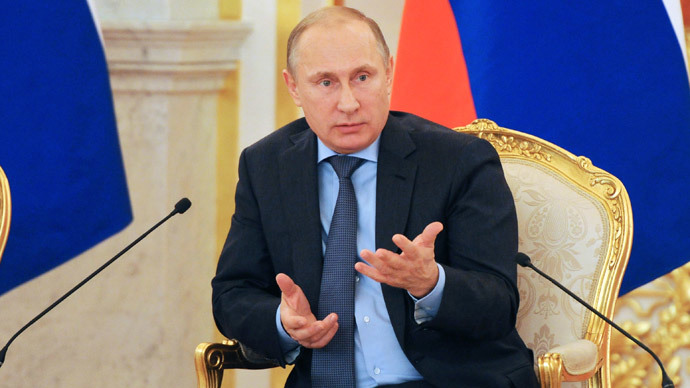'Money amnesty incentive for Russians to bring billions back home'

Many Russians would use the amnesty for returning capital to bring their money back home without the danger of it being seized, and then invest the domestic economy, Ben Aris, Editor-in-Chief of Business News Europe, told RT.
RT:Delivering his speech at the Annual Address to the General Assembly this Thursday Vladimir Putin proposed a total amnesty for all funds returning to Russia. What do you make of that? Has there been any similar experience of tax amnesties in other countries before?
Ben Aris: Yes, definitely some. The experience of these tax amnesties or capital amnesties is that there are a lot of people who would like to bring their money back in the right way, so that they are not in danger of having it seized, and then use it to invest it in the domestic economy. In the past other countries - like Kazakhstan - have gone down this road and have had several tax amnesties. And [amnesties] always bring in large amounts of money. The key question is exactly how much money it will bring. You have to remember that capital flight in Russia has been running around $50 billion every year for the last 20 years. In the 90’s the numbers were even higher. So there is an enormous pool of money overseas. The real question is: what sort of opportunities do Russians who have this money overseas see in Russia, and whether they want to bring it back and make use of it within the country. I think we are probably looking at tens if not hundreds of billions of dollars maybe even more.
READ MORE: Putin offers amnesty for money coming back to Russia
RT:In your opinion, what kind of economic situation is Russia facing now? What will be the main reasons for Russians to return their money back home?
BA: Various things are going on. On the one hand, the economy is grinding along at a very slow rate. The opportunity for investment maybe is not the most attractive … We have seen a pickup in industry since the financial sanctions were imposed and also the import ban on the European goods. There has been a huge uptick in agriculture. So there are good investment opportunities in those sectors. At the other hand there is a “de-offshorization” …. where the Kremlin is making it clear that it doesn’t like big Russian entities holding their assets overseas. It pushes companies to bring the money back home. So there is a sort of a political prerogative for companies to maybe repatriate some of their money for political reasons. If they don’t do it they could face some hit and it might be wise to bring large amounts of money back onshore in order to keep the criminal off your back.
RT:So who were the holders of the accounts outside of Russia? Do you think they will be interested in returning their money back to the homeland?
BA: Yes and no. I think “they” is actually everybody. One of the interesting things that came out of the crisis in Cyprus was the diversity of the amounts of Russians that were holding accounts there. It is not just the oligarchs, we have got medium-size business, and we’ve got individuals who have accounts in Cyprus and holding their savings there. Because Russia, you have to remember, has an open capital account. It is the only major emerging market where there are completely no restrictions. You can move your money inside or outside the same day without any difficulties, without any registration or capital controls, whatsoever. And people took advantage of that because they didn’t trust the national banking sector; it was unstable in the past. Capital flight was a feature of the Russian economy for two decades. People have been taking the opportunity to move their capital overseas. [It’s yet to be seen] exactly how much they are bringing back and who will do it.
The statements, views and opinions expressed in this column are solely those of the author and do not necessarily represent those of RT.
The statements, views and opinions expressed in this column are solely those of the author and do not necessarily represent those of RT.












